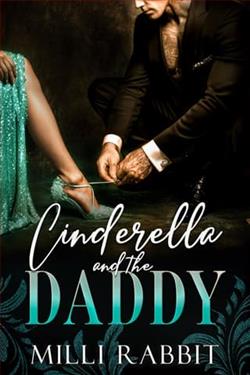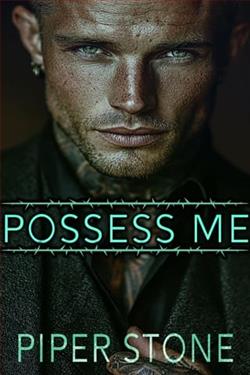Page 185 of Anti-Heroes in Love Duet
Sorrento.
I had been there once before.
A very long time ago.
I was sixteen, my heart soaring as I drove beside the man who would soon be my first lover on La Sorrentina drive, one of the most scenic portions of the coast. Christopher looked so exotic in the rented Fiat, his pale skin pinked by the hot sun pouring in from the windows. His otherness had been so sexy to me then. I remember reaching over and poking his flushed flesh to see it go from pink to white and back, imagining how the rest of his body might look when we undressed later that evening.
It wasn’t that the memory of our time in Sorrento that weekend was bad because he had treated me poorly. At the time, Christopher was still deeply invested in our relationship. It was bad because it hurt to know how naïve I’d been, how important I’d let him make me feel just because I longed for male attention I’d never get from my father.
Thinking about it made me feel foolish, something I’d spent the rest of my life trying to avoid.
It killed the happy butterflies in my gut, my belly a graveyard of memories.
“Lena,” Dante called as he tugged me closer. “You do not like Sorrento?”
I didn’t know what to say.
I didn’t want to tell Dante about Christopher for all the reasons I told my mama, but also because we were having a kind of honeymoon here despite the circumstances and I didn’t want to ruin it with decades old heartbreak.
“No,” I assured, running my nails over his freshly shaven jaw. “I can’t wait to go there with you.”
The Amalfi Coast was the jewel of Italy’s natural beauty. The steep cliffs festooned with brightly colored homes like something in a patisserie display window, the long rows of sun-baked lemons giving off a sweet, slightly tacky aroma on the sea scented breeze, and all that greenery bursting with multitudes of vivid blooms in the long spring and summer seasons. There was a quality to the light there that brought artists through the ages to those craggy shores in droves, but people visited for the food too—the sweet-tart tomato sauces smothering pastas and pizzas and eggplants, the green bite of pine nut pesto, and the lemon liquors thick with cream or sour as biting straight into the flesh like an apple. The people wore their sun-leathered, sea-weathered skin with pride, their bodies agile beyond their years from climbing up and down the countless stairs and hills that made up the topography of that pointed peninsula.
It was a beautiful place filled with beautiful, vivacious people.
And I’d hated it since I was sixteen.
It was filled with memories of the stupid teenage girl I’d been, believing myself in love with a man who had never loved me back. He had used me the way one uses a tissue, carrying me around crumpled in his pocket, hidden and dirty, to pull out when there was a deposit to be made into it.
Disgusting.
Filthy.
The entire affair.
I could think of it now, after years of therapy with less self-loathing. I didn’t want to throw myself off a cliff at the realization of how stupid I had been when I thought myself so worldly and wise. Now, I just felt sad when I thought of that time. Then, it had been the happiest period of my life. I’d laughed and danced, I dreamed and played piano as if I was possessed, emotions flowing through me to hammer at the keys. Music spilled from our little house in Forcella at all hours of the day when I wasn’t with Christopher.
It was why I avoided music so much after we moved away and left him behind.
It wasn’t possible to sit in Dante’s Lamborghini as we easily navigated the harrowing turns on the cliffside roads of the coast on our way to Sorrento and not remember the relationship that had poisoned me against sex and love, against Giselle, and against myself.
“No one loves you,” he said in English, the words staccato compared to the way my own Neapolitan dialect tended to meld each sentence into one long ribbon of sound. “Do you understand me?”
I shook my head, because I didn’t really. English was the one subject in school I struggled with despite my best efforts. I didn’t understand the strange, pattern-less rules of grammar, and my mouth seemed incapable of biting off the consonants properly.
But that was okay, because Christopher had offered to give me private lessons. My own father was a native English speaker, but he was rarely home and even when he was, he seldom took an interest in his bookish eldest daughter.
Christopher took a keen interest. He knew Seamus from Papa’s few years working at the local university, and they’d stayed friends.
I liked him. He was quintessentially foreign in every way, from his round, faded denim blue eyes and pale face inclined to burn in the hot Napoli sun to the way he drank tea instead of our strong Italian coffee. He was exotic. To a preteen girl with a head stuffed full of escapist dreams, he was utterly tantalizing.
And he knew it.
“No one loves you,” he repeated again, this time in Italian. His words were as soft and tender as the hand he passed over my head, down the back of my hair. “Not really. No one except me. You know that, don’t you, Elena?”
I blinked up at him, remembering how much bigger he seemed than me as a thirteen-year-old girl. The descending sun backlit his hair, burnishing it so that it shone almost as copper-toned as my own. I wanted to touch it, and his words of love gave me the uncharacteristic confidence to do so. He smiled encouragingly as my fingers rubbed a strand of light brown hair.
“Capisci?” he asked again. “This is why you are always so alone. This is why I come to play with you.”















